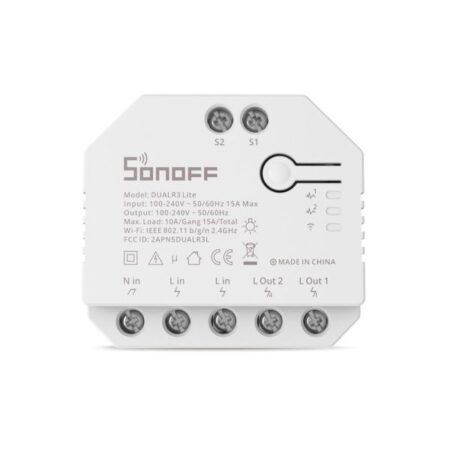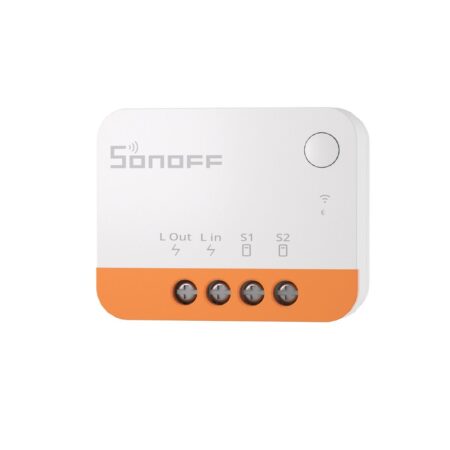One of the entry-level products from the European Nous brand is the Nous L6T 1-gang Wi-Fi smart relay, which can control and measure the consumption of devices up to 10A. It has a similar design to the popular Sonoff Basic R2 relay, but unlike the Sonoff Basic, it includes an energy monitoring module.
Nous supplies the L6T relay module with pre-installed Tasmota firmware, making it especially recommended for users and integrators of open-source smart home systems.
What is Tasmota firmware?
TASMOTA is an open-source firmware increasingly used – even factory pre-installed – as the base software for smart home devices. It allows cloud-independent local control, supporting manufacturer-independent, local, secure data storage. As Tasmota is open-source, the community continuously develops and checks it, increasing security and reliability.
It supports various communication protocols, such as MQTT, HTTP, and WebSocket, ensuring wide compatibility with different devices. TASMOTA devices can easily integrate with various smart home hubs, such as Home Assistant, OpenHAB, Domoticz, and Node-RED.
The Tasmota firmware offers a local web administration interface on the devices for different settings. It does not offer a “factory” app, but several third-party applications assist in controlling and managing the devices. Smart home platforms like Home Assistant, OpenHAB, and others also have mobile applications to integrate and control TASMOTA devices.
The Nous L6T WiFi smart switch module can be used as a single-channel relay switch. The device comes with pre-installed Tasmota firmware, enabling easy integration with various smart home systems like Home Assistant.
The L6T switch relay operates with a 90-250V AC power supply and can switch and measure the consumption of connected devices. It connects to the Wi-Fi network via the built-in 2.4 GHz Wi-Fi module.
Since the L6T operates with Tasmota firmware, it is not compatible with Nous’ own application but rather with open-source solutions such as Home Assistant or other systems supporting the MQTT protocol.
It operates in local mode without an internet connection or factory cloud and can be scheduled.
When connected to Home Assistant, it supports voice control with Amazon Alexa and Google Assistant.
Main Features:
- Wi-Fi connection: Connects directly to the Wi-Fi router via 2.4 GHz Wi-Fi.
- ESP8266 processor
- Tasmota firmware: Open-source software that allows flexible customization and cloud-free control.
- Energy monitoring: The built-in energy monitor allows you to track the power consumption of controlled devices.
- Single-channel control: Suitable for controlling one circuit up to 10A.
- Compatibility: Compatible with numerous open-source smart home systems, such as Home Assistant, OpenHAB, Domoticz, and others.
- Voice control: Compatible with Google Assistant and Amazon Alexa systems, allowing control via voice commands (with Home Assistant).
- Safe and reliable: The open-source Tasmota firmware offers local operation and a secure solution with local (cloud-free) data storage.
Examples of integration possibilities:
- MQTT – A messaging protocol that enables easy integration of devices running Tasmota firmware with various smart home systems, such as:
- Home Assistant – One of the most popular open-source smart home platforms that allows the integration and automation of various smart devices.
- OpenHAB – Another open-source home automation system that supports a wide range of device integrations and automation possibilities.
- Domoticz – An easy-to-use home automation system that allows the control and monitoring of various smart devices.
- Node-RED – A visual programming tool that enables easy integration and automation of smart home devices through flow diagrams.
- KNX system
- ioBroker system
- homematic IP system




















































Reviews
There are no reviews yet.